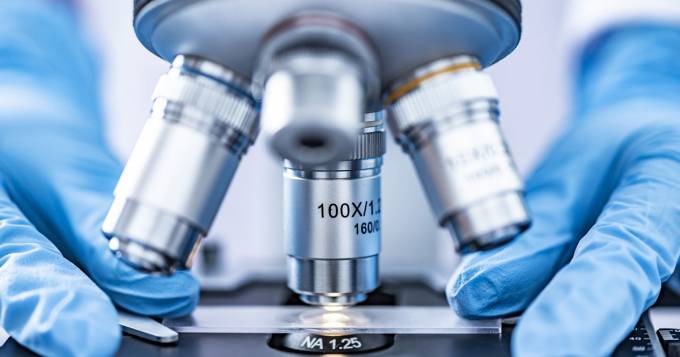6 Common Mistakes to Avoid When Setting Up a Biotech Startup in Singapore

From almost having no share in the economy two decades ago, biotech and pharmaceutical firms now account for about 5% of Singapore’s GDP. Thanks to state support, a world-leading innovation ecosystem, and a healthy inflow of global venture capital, the country’s small but rapidly developing biotech scene is poised to compete directly with more established hubs in Europe and North America.
While there are numerous advantages to locating a biotech startup in Singapore, there are still many things you’ll need to watch out for. Here are some of the more common mistakes biotech startups make when locating in Singapore.
1. Buying Your Own Lab Equipment
One of the best things about putting up a biotech startup in Singapore is the ready availability of fully equipped co-working laboratories. Innovative local startups have recently started offering laboratory space for lease with the needs of biotech startups in mind. Notably, labs with biosafety levels as high as BSL-2 are available for lease or rent.
This is a huge deal as equipment and laboratory costs are among the biggest barriers to starting a biotech venture. Today, small and large biotech firms alike rely on Singapore’s nascent lab leasing industry for accommodating a wide range of R&D needs.
While there are instances where having your own lab and equipment is the best way to go, being able to rent or lease these resources can help your budding biotech venture manage its cash more effectively.
2. Not Hiring Experienced Managers
If you only have limited funds to build a team for a biotech startup, you are probably going to get the most bang for your buck by focusing on hiring the best managers rather than the most talented researchers. While it’s certainly best to have both, experienced managers can do more to reduce the risk and instability that come with operating a startup.
Experienced managers can reduce waste, help the venture hit deadlines, and optimise workflows. These things are just as important for a biotech startup as access to the best researchers and lab equipment. Additionally, experienced managers can be crucial for helping develop talent within the organisation, which, in turn, reduces the cost of hiring and retention in the long term.
3. Not Considering Global Competition
Thanks to state support, a healthy startup ecosystem, and leasable lab spaces, setting up a biotech company in Singapore has never been easier. However, locally based biotech ventures are still competing in a global market that is still dominated by bleeding-edge biotechnology giants based in Western Europe and North America.
This means that despite their advantages, local biotech startups still have to find a new niche or be prepared to go head-to-head against the world’s biotech behemoths. By focusing R&D efforts on unserved or underserved market opportunities, your startup can accumulate patents and create useful products and services that do not go against already existing solutions.
4. Not Maximising Singaporean Government Assistance
One of the most compelling reasons to build a biotech startup in Singapore is the level of support extended by the state to tech and biotech firms. Most Singapore-based tech and biotech startups can enjoy a range of grants, subsidies, and assistance schemes. Additionally, biotechnology is considered by Singapore’s economic planners to be a strategic industry, which entitles biotech businesses to some preferential treatment.
Given that money is almost always an issue for new biotech startups, maximising these grants and subsidies should be a priority from the start.
5. Over-Reliance on CROs
A contract research organisation (CRO) is a third-party provider of testing and research services. These businesses are vital to the world’s biotech startup ecosystem, acting as “force multipliers” that permit increased research capacity during critical times.
While using CROs will often be necessary, it’s important to choose the right ones. Even though most of them are likely to be on the level, you will want to be very careful about when and how to employ CROs.
It’s crucial to work with your CROs very closely to ensure that they are delivering research outputs to the needed standards. This is because a few CROs have, in the past, been implicated in fraudulent activities that have negatively affected their clients. By vetting CROs and carefully choosing what kind of work to offload, you can enjoy expanded research capacity and limit your outsourcing risks at the same time.
6. Not Focusing on Consistency
Given the complexity of most biotech ventures, it’s important to have systems in place that ensure consistency. While having rockstar performers can be great, relying on such individuals rather than systems is often unsustainable. Having roadmaps, employee development systems, and strong tech foundations will be more important for long-term success than having dozens of brilliant researchers.
This isn’t to say you cannot embrace unconventional approaches. Biotech ventures can have all kinds of setups that reflect the purpose and character of the business. Being unconventional is not necessarily an issue in this industry and some out-of-the-box thinking can be an asset. What is a mistake is to rely on the efforts of individual team members and not on systems that help maximise the odds of continued success.
Build Your Biotech Startup in Singapore
While Singapore offers many perks for biotech startups, gaining a foothold in the biotech industry remains a challenge that isn’t for the faint of heart. By knowing some of the more common mistakes made by local biotech startups by foreign enterprises setting up shop in the city-state, you can leverage the country’s many different advantages to your full benefit.
01 Dec 2022SG Expats